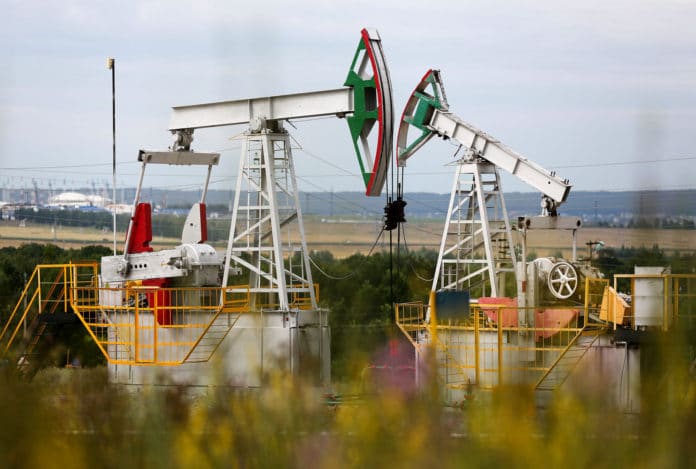Russian President Vladimir Putin said he sees no obstacles to an OPEC agreement this month after oil exporters made major progress in overcoming differences as he reaffirmed Russia is willing to freeze crude output at current levels.
“Whether an agreement will be reached, I can’t say 100 percent, but there’s a strong likelihood that it will be achieved,” Putin told reporters on Sunday after attending the Asia-Pacific Economic Cooperation summit in Lima. “The main contradictions within OPEC, if they’re not yet eliminated, can be eliminated.”
After initial negotiations aimed at freezing production failed in April, a preliminary deal was reached in Algiers on Sept. 28 that ended two years of OPEC members pumping without limits. Although the organization’s pledge to cut output must still be finalized, Russia has added more than 400 billion rubles ($6 billion) in projected budget revenue based on the talks, according to two officials familiar with the government’s calculations.
“There’s no difficulty for us to freeze production” at current levels, Putin said, repeating Russia’s position.
The world’s biggest energy exporter is struggling to pull out of its deepest recession in two decades after a slump in oil prices and international sanctions over its annexation of Crimea and covert military intervention in eastern Ukraine in 2014. In addition to the OPEC talks, closer ties with the U.S. under Donald Trump’s incoming administration may also help Russia ease pressure on its economy.
During the campaign, now President-elect Trump called for an alliance with Russia to fight Islamic State in Syria and Iraq and suggested sanctions imposed against Russia over the Ukrainian crisis could be eased. Putin said he’s glad to wait to see whether this pledge comes true.
While some of Trump’s campaign statements casting doubts on U.S.-led alliances and threatening to tear up or renegotiate free-trade deals have raised alarm, Putin said he hadn’t detected any fear at the summit about that or the U.K.’s exit from the European Union.
“We all understand very well that there’s always a huge difference between pre-electoral rhetoric and real policy in virtually every country,” he said. On Brexit, Putin expressed confidence that the process would take place calmly. “Of course, there are certain risks, but I’m almost sure that we’ll manage to avoid them,” he said.
The Russian leader held a four-minute meeting with President Barack Obama in what may be their last dialogue amid deep tensions over Ukraine, Syria and the U.S. presidential election, in which Russia was accused of intervening through hacking attacks that targeted the Democratic camp.
In a recent phone call, Trump confirmed his intention to normalize relations between the U.S. and Russia. “For my part, I did the same,” Putin told reporters in Lima. They agreed that their staff will hold talks before the two leaders meet in person.
Trump is “actively forming his team” but has “no official staff yet,” Putin said. “We’ll wait. There’s still time.”
Putin doesn’t know yet how his relation with Trump will go. Earlier this month he warned that “it won’t be an easy path” to restoring relations.
Turning to efforts to end a World War II territorial dispute with Japan, Putin said economic-cooperation projects proposed by Japanese Prime Minister Shinzo Abe could help by increasing trust. The two leaders met on the sidelines of the APEC summit, and Putin is due to make an official visit to Japan in December as long-standing negotiations continue on an agreement formally ending hostilities.
“Both Russia and Japan genuinely want to sign a peace treaty, and we’re looking for ways to do this,” said Putin. He cautioned, nonetheless, that the two countries remain far apart on the issue of ownership of four islands known as the Northern Territories in Japan and South Kurils in Russia, which Soviet troops occupied in the dying days of World War II.
–With assistance from Henry Meyer






